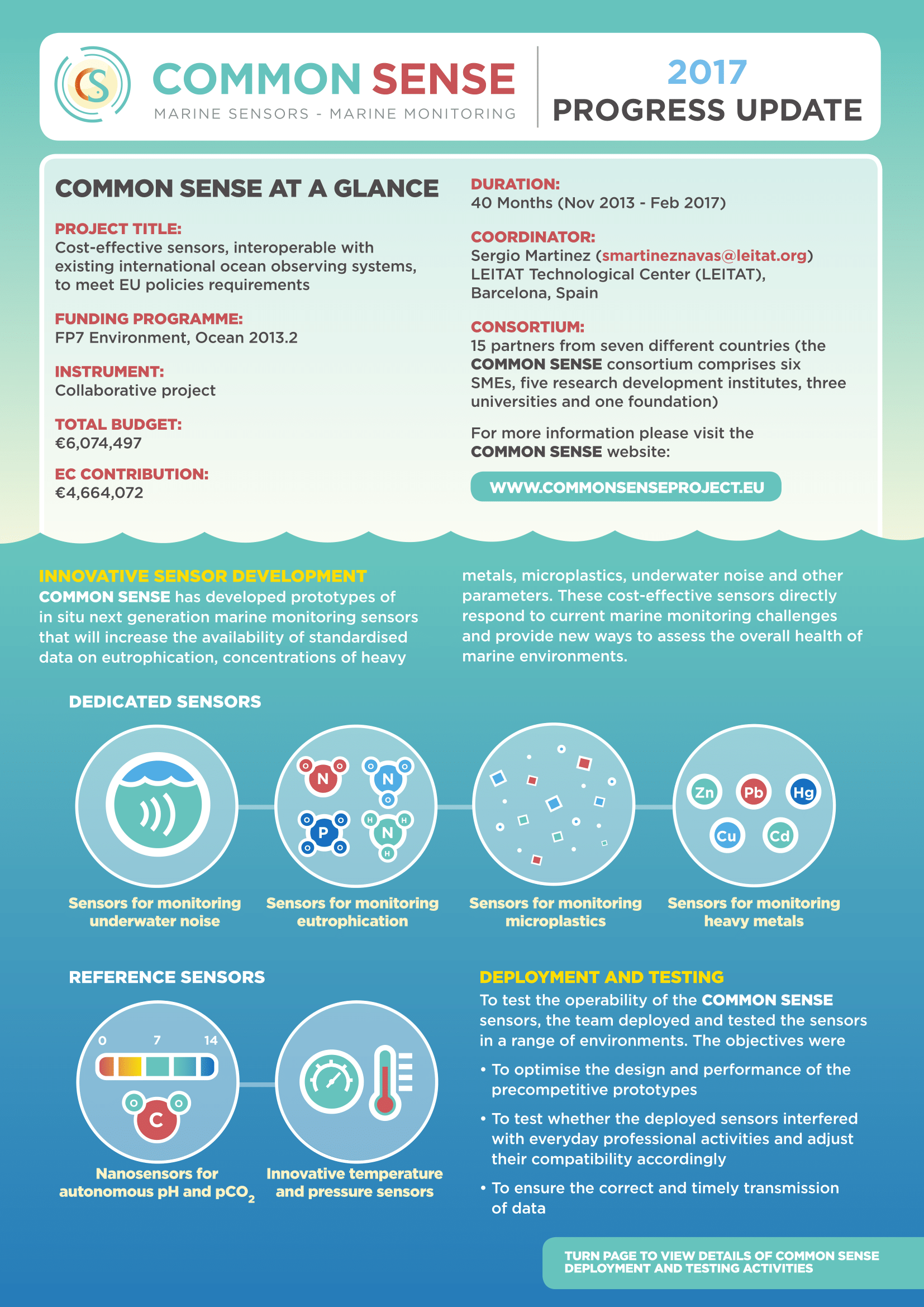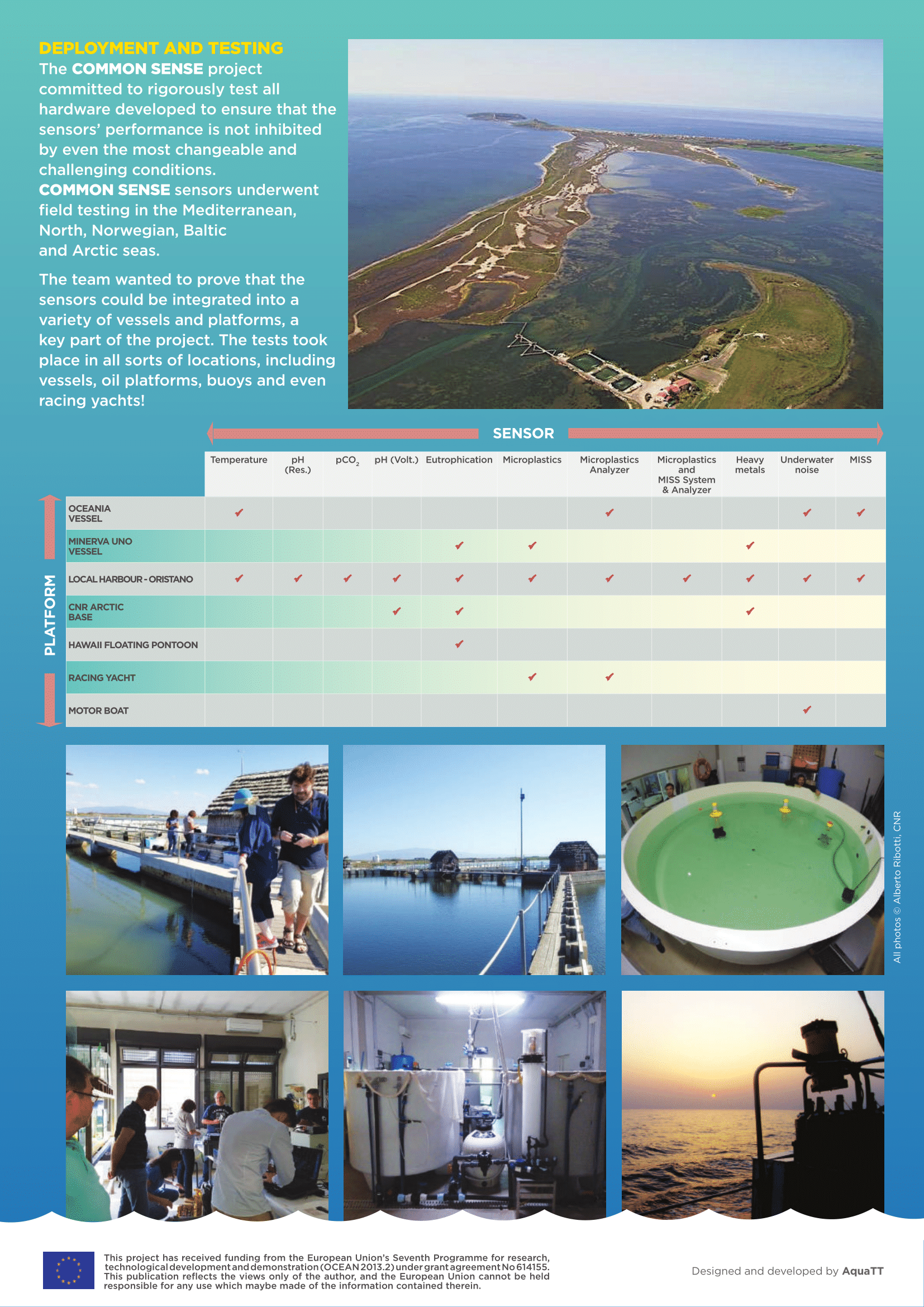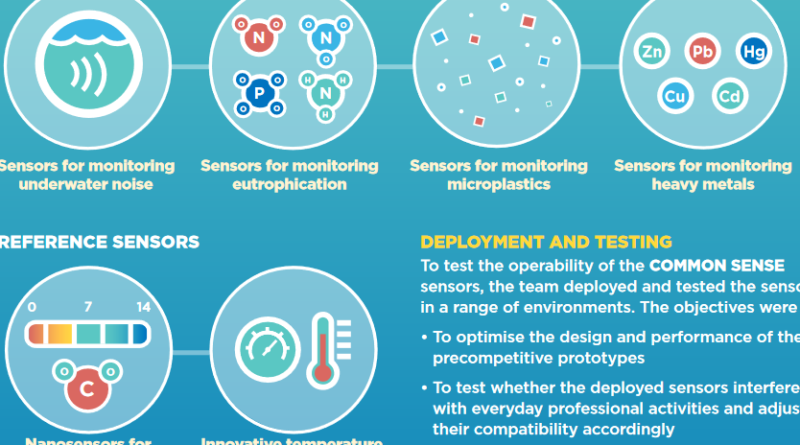New Resources for European Marine Monitoring
Five months have already passed since the COMMON SENSE project successfully finished. Here is a short review of this project containing the key outputs. The project was a great success, with significant progress made to improve marine data acquisition using sensors to contribute towards increasing the availability of standardised data on: eutrophication; concentrations of heavy metals; microplastic fraction within marine litter; underwater noise; and other parameters such as temperature, pH, pCO2 and pressure.
The progress achieved is impressive with the majority of the sensors moving from a technology readiness level (TRL) of 2-3 up to 6-7, with one sensor now at TRL 8 – the Mini Sea Sampling System. While commercialisation of these sensors is beyond the scope of the project as it has finished, interested stakeholders are welcomed, and encouraged to engage with the project partners to ensure the sensors are brought to market. In many cases, partners have committed to continuing the work in COMMON SENSE in order to do so.
From an industrial point of view, sensor profiles were developed as technical briefs, outlining the technical specifications and highlights of each sensor. These are available to download from the COMMON SENSE website’s media section. Also, the project carried out a feasibility analysis and have outlined manufacturing procedures for each sensor, providing high quality information on how the sensors can be reproduced and brought to market.
According to the coordinator Sergio Martinez from LEITAT: “Tomorrow has arrived! Now, at the end of the project, the proposal vision has come true, our objectives have materialised and the results are widely visible. We looked at the requirements of next generation sensors, including measuring new pollutants and increasing performance and compared them to existing sensors to develop cost-effective solutions, transferring acquired data to an interoperable web platform. We tested and deployed our marine sensors and systems with exciting results. Some sensors are now advanced prototypes and partners will continue to keep on working on these innovative marine solutions. They could reach the market and help society by contributing to the realisation and maintenance of good environmental status in all EU Member Statesâ€.
Contact: Project coordinator Sergio Martinez



